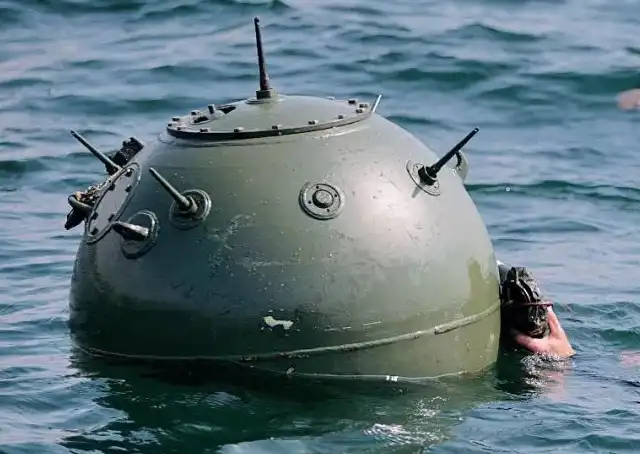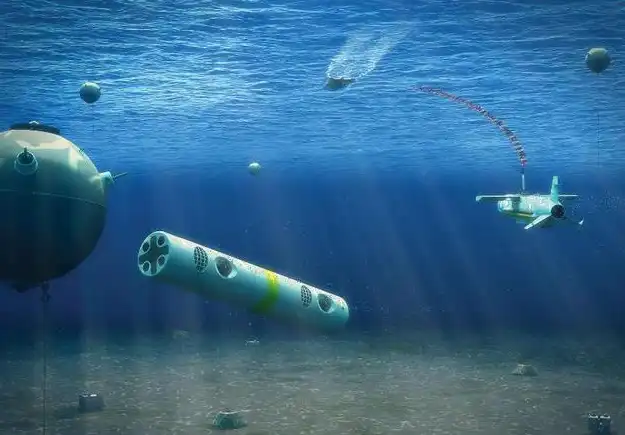intelligent mine:Balancing aircraft carriers and defending the ocean new weapon
The ocean has been a nexus of national power and strategy since ancient times. With the rapid development of science and technology, today's oceans are no longer the battlefields that could be dominated by powerful ships and cannons.
In this information age, new types of weapons are emerging in large numbers, and how to safeguard national interests in the complex marine environment has become an urgent problem that military strategists from various countries need to solve.

In recent years, the US Navy has frequently conducted “freedom of navigation” operations around the world with its powerful aircraft carrier formations, not only to show off its military prowess, but also to use the pretext of “freedom” to spy on other countries’ military secrets and carry out military provocations.
Such reckless actions have also provoked vigilance and animosities in many countries. To cope with the provocation, various countries are vigorously developing new types of weapons in order to counterbalance the power of the US Navy's aircraft carrier.
Hypersonic missiles, as an emerging weapon system, were once considered the "nemesis" of aircraft carriers due to their extremely fast flight speeds and powerful maneuvering capabilities.
Its emergence has imposed certain constraints on the "freedom of navigation" enjoyed by US aircraft carriers in many countries.
However, the research and development cost of hypersonic missiles is high, the technical difficulty is great, and a huge amount of money is needed each time they are used, which is a considerable burden for many countries.
Against this backdrop, Chinese scientific researchers, after relentless efforts, have come up with a magic bullet: smart mines.
This new type of mine is not only cheap but also mass-produced and extremely flexible in its deployment. The emergence of intelligent mines can be said to be a powerful countermeasure to the "freedom of navigation" of the US military.

Smart sea mines boast excellent stealth performance, can remain silent after diving into very deep underwater, and can disable the enemy's detection equipment.
It also features an advanced detection and recognition system that can distinguish between friendly and hostile units, ensuring precision in targeting.
This intelligent and information-based naval mine not only improves the defensive efficiency but also greatly reduces the risk of harming friendly forces.
More importantly, smart mines can accept remote control, which means that tactics can be quickly adjusted when necessary to strike specific targets accurately. This flexibility makes smart mines extremely practical in responding to emergencies.

In my personal view, the R&D of intelligent torpedoes is not only a major breakthrough in China's military technology, but also an important contribution to the balance of international marine strategy.
It provides an effective defense for nations wary of U.S. Navy “freedom of navigation” challenges in a cost-effective and operationally efficient manner.
The emergence of this weapon also reflects, from one perspective, the rapid development of China's military technology and its profound understanding of national security.
In this era of digitalization and intelligence, the strategic position of the ocean is becoming increasingly important. The research and development of intelligent mines have not only allowed China to establish an important position in the international maritime strategy, but also contributed Chinese wisdom and proposals to the maintenance of world peace and stability.
In the foreseeable future, intelligent mines will surely play a more important role in the oceanic strategic competition, and become a powerful weapon in terms of containing those stronger powers and protecting national interests.
